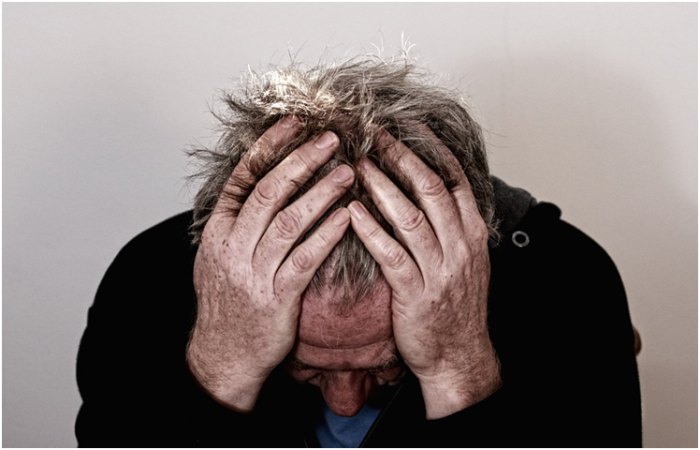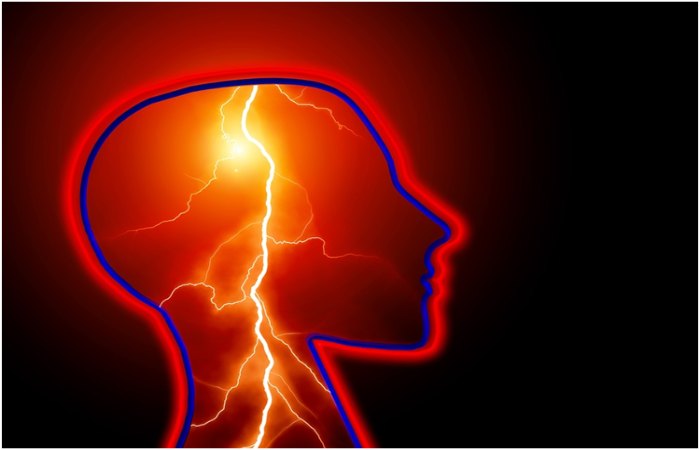CBD Reduce The Chances Of Seizures – For ages, people have used cannabis to cure epilepsy. In the United States, it was declared legal to use marijuana for medical purposes. In addition, the FDA authorized Epidiolex, its oil for seizures, to treat specific epilepsy syndromes in 2018.
Approximately one-third of people with epilepsy develop drug-resistant epilepsy, which means standard medications do not control seizures. The idea that medical marijuana could assist persons with drug-resistant epilepsy (commonly known as refractory epilepsy) reduce or perhaps halting seizures is intriguing.
Just about anything we know about CBD products from NuLeaf Naturals and seizures is outlined below.

Table of Contents
What is CBD?
Cannabidiol is a substance present in cannabis plants that help treat various ailments. It’s not the same as THC, the psychoactive ingredient in marijuana that makes a person feel ‘high.’ It collects from marijuana plants and usually converts into an edible oil form.
Does Consuming CBD Reduce the Chances of Seizures?

The ability of its oil to treat seizures is still being researched. The most thorough research has been performed on people with one of the 3 conditions the FDA has approved CBD oil.
CBD as a Treatment for Lennox-Gastaut Syndrome:
Approximately 2% to 5% of children with epilepsy have Lennox-Gastaut syndrome.
Epidolex’s efficacy in treating seizures in individuals with Lennox-Gastaut syndrome was studied in two 14-week clinical studies.
● Study 1-
The antiseizure effect of 20 mg per kilogram (mg/kg) of Epidolex per day matching to placebo during the first study.
They discovered:
- Epilolex reduced seizure frequency by 44% in half of the patients.
- Half of the placebo group had 22% fewer seizures than the control group.
● Study 2-
The second trial examined the effects of daily Epidiolex doses of 10 mg/kg and 20 mg/kg against a placebo.
Compared to the placebo group, both Epidiolex groups experienced considerably fewer seizures.
- Half of the subjects who used 20 mg/kg of Epidiolex daily had 42% fewer seizures.
- Half of the participants who received 10 mg/kg per day had a 37% reduction in seizures.
- And half of the patients had 17 % fewer seizures in the placebo group.

Dravet Syndrome and CBD
A draft syndrome is an uncommon form of epilepsy characterized by seizures that seem to be resistant to treatment.
In a clinical experiment, researchers evaluated the effects of 20 mg/kg Epidolex taken once a day to a placebo in children aged 2 to 18.
Compared to the placebo group, those who took Epidolex showed a significant reduction in seizure frequency (39 % reduction) (17% decrease).
CBD for Tuberous Sclerosis Complex
Tuberous sclerosis complex is an uncommon disease that affects roughly one out of every 6,000 people. It’s a hereditary condition that causes noncancerous tumours to form in different body regions. Some patients experience seizures as a result of brain tumours.
Experts assessed the effects of 25 mg/kg and 50 mg/kg of Epidiolex every day on a group of 148 patients having tuberous sclerosis complex to a placebo in a clinical experiment.
The Epidolex group had a median recovery of 48%, while the placebo group had a median recovery of 24%.
CBD for other Causes of Seizures
More research is required to see if CBD treats different types of seizures. But, preliminary research has yielded encouraging findings.
Evidence shows that CBD may boost the action of the epilepsy medicine clobazam (Onfi). There’s some evidence that it may boost the effectiveness of other antiepileptic medicines.
According to a 2018 study, they studied the effects of it on 55 people with one of four types of epilepsy syndromes:
- CDKL5 deficiency is a genetic disease.
- Aicardi syndrome is a condition that affects the heart.
- Doose syndrome is a condition that affects a person’s
- Duplication of the 15th chromosome (Dup15q)
The subjects experienced an average of 59.4 seizures each month at the start of the study. After 12 weeks, the monthly average had dropped to 22.5. Over the study’s 48 weeks, the improved rate remained stable.
Where can you get CBD oil for seizures?
Among most, but not all, US states, CBD oil for seizures in adults from health food shops; however, the restrictions vary, and you must always consult your healthcare professional. Several companies sell CBD oil to treat various ailments, including anxiety, sleeplessness, and chronic pain, and it could even sell as an epilepsy treatment.
Always be with your doctor before purchasing CBD oil for seizures. According to studies, artisanal CBD oil – that is legal but created by tiny businesses – is significantly less effective than the pharmaceutical grade of this herb. As a result, you should follow your doctor’s advice.
Risks and Side Effects
When it comes to taking CBD oil for epilepsy and seizures, there are several potential risks and side effects.
Side Effects:
CBD oil has minimal, generally minor, adverse effects. It has several potential adverse effects.
- sleepiness or fatigue
- drowsiness
- diarrhoea
- an upset stomach
- changes in weight
- changes in appetite
It might make it dangerous for some people to drive or operate heavy machines.
Are there any CBD Strains or Products that are Expressly Indicated for Seizures?
Researchers concluded that CBD-rich cannabis products appear to be more beneficial than a pure form of it at reducing seizure frequency in a 2018 assessment of trials, although further research is needed.
Researchers discovered that individuals who used its commercial product had a 70% rise in seizures, but those who took prescription one had a 39% reduction.
It may be because commercial CBD products contain larger quantities of THC, which can cause seizures.
Even though the research was small, with just 31 participants, it emphasizes the necessity of utilizing a high-quality, correctly labelled product.
Epidiolex is subject to strict production standards and has a constant dose because it is FDA authorizing.
Because the FDA does not monitor its commercially accessible products, there’s a good chance the amount of CBD and THC listed on the label isn’t accurate.
Conclusion
CBD’s potential usefulness in treating seizures broaden after recent studies. It may be beneficial for some people having treatment-resistant epilepsy, but it is not for everyone.
See a doctor rule out any potential interactions and other medicines. Its users should continue cooperating with their doctors to track their findings and any side effects.
New high-quality studies can support the early findings that it might help treat seizures as regulation around CBD opens up.

